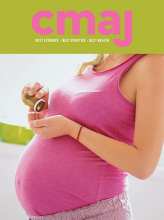In their article in CMAJ, Downar and colleagues draw conclusions that could have a far-reaching impact on the public’s perception of medical assistance in dying (MAiD), based on potentially misleading data.1 According to an article in the Globe and Mail, “The authors of the new Ontario research say its findings — which are based on reviews of every assisted-dying case in the province over 2 years — counter fears that the procedure would become a final refuge for patients too poor and vulnerable to access high-quality health services, including palliative care. Instead, the opposite has proved true: It is the affluent, not the marginalized, who most often avail themselves of the assisted-dying law that Canada enacted nearly four years ago.”2
The data for this study were based on self-reporting of the MAiD provider, and not by the patient. Evidence by self-reporting is often biased toward compliance with regulations. Case in point: a review of anonymous questionnaires from Belgium reveals that self-reporting led to only 1 in 2 cases being actually reported to authorities as euthanasia. Those not formally reported were correlated with decreased adherence to guidelines and lacking in palliative care involvement.3
Given we are on the brink of MAiD expansion in Canada without a foreseeable death clause, a study prematurely declaring no concerns for the vulnerable is alarming and reckless.
It is also important to consider whether being affluent precludes vulnerability. Is financial abuse of older adults a nonissue in Canada?4 Could poor clinical acumen in helping patients adjust to loss of power or function and high rates of depression still be hidden in these figures?
Footnotes
Competing interests: None declared.











